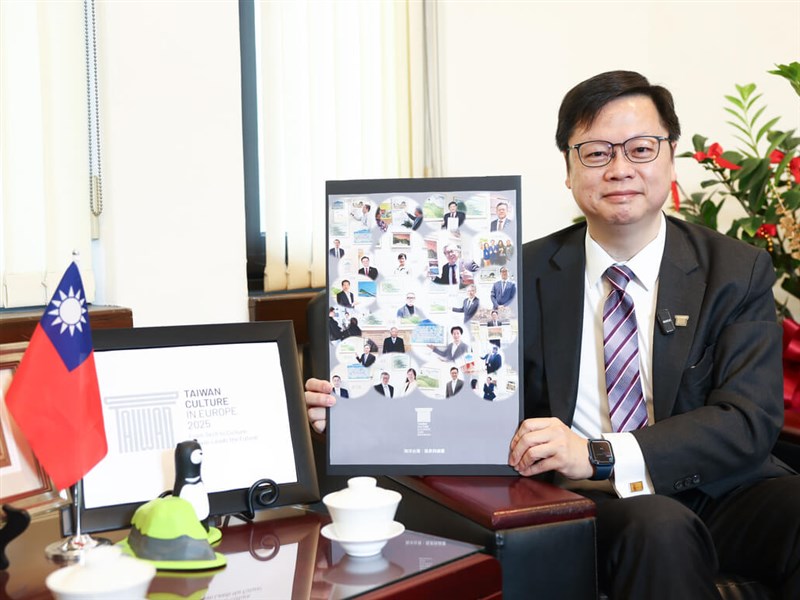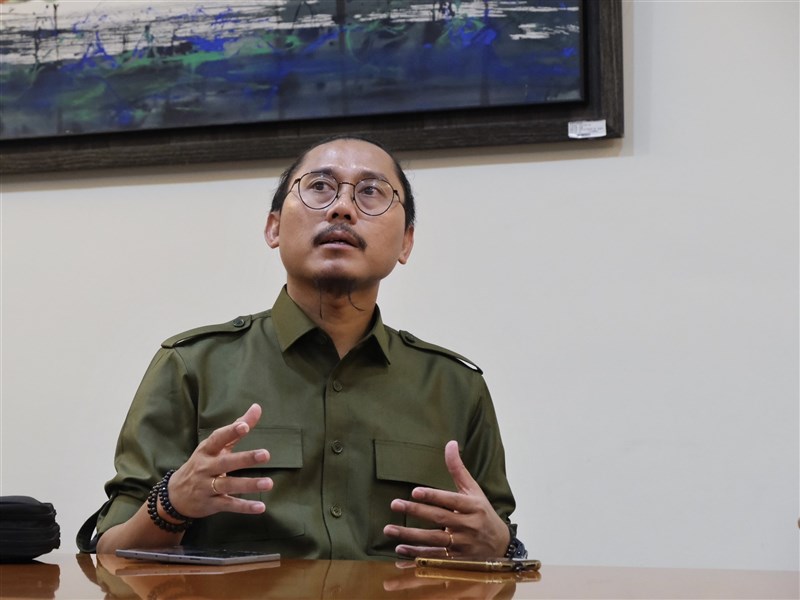Sexual abuse, violent beatings, babies stomped to death, corpses piled high in warehouses, pregnant women kicked in the stomach until they miscarry: these are some of the everyday atrocities seen in North Korea's "re-education camps," according to a five-time North Korean defector.
(Full text of the story is now in CNA English news archive. To view the full story, you will need to be a subscribed member of the CNA archive. To subscribe, please read here.)
More in INTERVIEW
!['Taiwan Culture in Europe' campaign forges closer ties: Official]() 'Taiwan Culture in Europe' campaign forges closer ties: OfficialThe "Taiwan Culture in Europe 2025" initiative has successfully showcased Taiwan's freedom, openness and diversity, via cultural events in Europe, a senior Taiwanese diplomat has said.12/20/2025 09:54 AM
'Taiwan Culture in Europe' campaign forges closer ties: OfficialThe "Taiwan Culture in Europe 2025" initiative has successfully showcased Taiwan's freedom, openness and diversity, via cultural events in Europe, a senior Taiwanese diplomat has said.12/20/2025 09:54 AM![China-Japan situation reflects 'wolf warrior' approach: Taiwan diplomat]() China-Japan situation reflects 'wolf warrior' approach: Taiwan diplomatTaiwan's Representative to Japan Lee Yi-yang (李逸洋) has said that Beijing's actions toward Japan in the past few weeks reflect its long-standing "wolf warrior diplomacy" intimidation approach.12/15/2025 06:44 PM
China-Japan situation reflects 'wolf warrior' approach: Taiwan diplomatTaiwan's Representative to Japan Lee Yi-yang (李逸洋) has said that Beijing's actions toward Japan in the past few weeks reflect its long-standing "wolf warrior diplomacy" intimidation approach.12/15/2025 06:44 PM![PBHI vows to continue rights work amid Indonesia's human rights decline]() PBHI vows to continue rights work amid Indonesia's human rights declineAs a lawyer and human rights defender standing up for vulnerable groups across Indonesia, Julius Ibrani is no stranger to intimidation from authorities, and the fear of reprisals is ever-present.12/14/2025 08:52 AM
PBHI vows to continue rights work amid Indonesia's human rights declineAs a lawyer and human rights defender standing up for vulnerable groups across Indonesia, Julius Ibrani is no stranger to intimidation from authorities, and the fear of reprisals is ever-present.12/14/2025 08:52 AM
Latest
- Society
Air pollution warning issued for sensitive groups on Sunday, Monday
12/20/2025 10:11 PM - Society
KMT caucus charges Constitutional Court justices with malfeasance
12/20/2025 10:02 PM - Culture
International marching bands flood Chiayi City with music for festival
12/20/2025 09:49 PM - Society
CDC makes HIV warning after Taipei knife attack
12/20/2025 07:40 PM - Society
Taipei mass stabbing likely 'lone wolf' attack: Police
12/20/2025 07:25 PM


